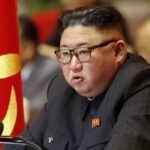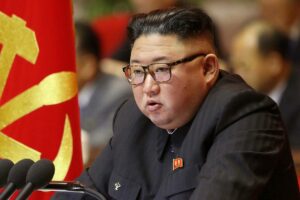While China’s image has deteriorated significantly in much of the West new survey shows that’s not the case in neighboring Southeast Asia.
Southeast Asian general publics tend to be far more positive about China than their national elites, according to a comparison of existing polls of “elite” opinion and a recently-published survey of 15 Indo-Pacific nations.
Analysts say this could be because ordinary people tend to perceive China primarily through economic lenses, increasing the popularity of the region’s main trading partner and principal investor in many of their states.
More than 80% of ordinary people in Thailand and Indonesia said they were “positive” or “very positive” about China, according to the Indo-Pacific survey just published by the Sinophone Borderlands research project at Palacky University Olomouc in the Czech Republic.
Around two-thirds of Malaysians expressed warm feelings toward China, a figure only slightly lower than among Singaporeans. Vietnamese and Filipinos held the least popular views of the six surveyed Southeast Asian states, although more than half of Filipino respondents held positive views of China.
“In the West, China’s image has deteriorated significantly in recent years; that’s not the case in Southeast Asia,” said Richard Turcsányi, a professor at Palacky University Olomouc and an author of the survey.
“At the same time, the US is not losing either: the region simply thinks it can have it both ways,” he added.
Around 80% of Thais, Vietnamese and Filipinos expressed positive or very positive opinions of the US, the report also found. Malaysians held the least popular views of the US of the six Southeast Asian countries surveyed, yet a majority still saw it positively.
Vietnam and the Philippines were exceptions as the US was seen much more positively than China, which is probably related to the territorial disputes they have with Beijing, as well as historical legacies, the report stated.
“The results show that the US and China are not really perceived as mutually exclusive choices,” said Turcsányi.
The public opinion survey appears to differ somewhat from previously published polls of “elite” opinion in the region.
The latest State of Southeast Asia survey, published annually by the ISEAS-Yusof Ishak Institute in Singapore, found that while elites reckon China has the most economic and political power in the region, most don’t see this as a positive development.
Although the majority of elite respondents across the region believed that China was the main economic and political actor in the ten-member Association of Southeast Asian Nations (ASEAN) region, a majority of those (64.4% and 54.4%, respectively in each case) also said they were worried about this, according to the latest survey for 2022.
Just 7% of elites from across the region said China is “a benign and benevolent power,” and most (41%) saw it “as a revisionist power and intends to turn Southeast Asia into its sphere of influence.”
According to Chong Ja-Ian, a political scientist at the National University of Singapore, many of China’s image problems and resulting limitations to its influence may center on issues that elites dominate.
“On other issues where the public is more involved, Beijing may have less of an image problem,” he added.
Ian Storey, a senior fellow at the ISEAS-Yusof Ishak Institute, reckons that perceptions of China are more positive among Southeast Asian publics than elites because the former largely view China from an economic perspective.
His colleagues at ISEAS, who conduct the annual elite surveys, point out that there is also a discrepancy between elite and public opinion on the United States.
“The elites definitely value America’s contribution for development, peace and stability in the region over the past year, although commitments waxed and waned depending on who is staying in the White House and his administration,” said Melinda Martinus, ISEAS-Yusof Ishak Institute’s lead researcher for socio-cultural affairs and co-editor of its State of Southeast Asia surveys.
Indeed, a Pew Research survey in 2001 found that 75% of Indonesians had positive views of the United States. By 2003, however, it fell to just 15%, the lowest level in recent history. It wouldn’t recover to above the 50% mark until 2009, and it fell again below this level after 2016 coinciding with the election of Donald Trump.
Mostly this was because of the US-led coalition’s intervention to overthrow the Saddam Hussein regime of Iraq. Much of the Muslim world (and Indonesia is the largest Muslim-majority country on the planet) was in an uproar over the perceived as an unwarranted invasion.
However, perceptions of the US among Indonesia’s elite have likely improved because of associations with America.
Ten ministers in the administration of Joko Widodo, the Indonesian president, graduated from US universities, “indicating that they have a lot of exposure to American democracy and the value of it,” noted Martinus.
“Thus, they feel much more comfortable collaborating with the US on various global issues,” she added.
There are also differences in elite and public opinion when it comes to which side Southeast Asians would likely want to align amid intensifying US-China tensions and rising concerns they could be forced to pick between the two superpowers, particularly as Washington cranks up “decoupling” with China.
The ISEAS-Yusof Ishak Institute survey asked elites whether ASEAN should choose the US or China if forced to do so. Some 43% said China, down almost a percentage point from the 2021 survey, and 57% said the US.
The public opinion poll found similar percentages for some of the surveyed countries. Around 40% of Malaysian public respondents said they would choose to align with China, and 43% of Malaysian elites said the same. The difference was only a few percentage points for Filipinos.
However, around 35% of the Indonesian public said they’d prefer to side with China, lower than the 44% of the country’s elites who would opt for China. A third of the Singaporean public would pick China, compared to only a fifth of the city-state’s elites.
Only around 10% of the Vietnamese public said they would prefer to align with China, whereas 26% of Vietnamese elites said so.
Source : Asia Times















